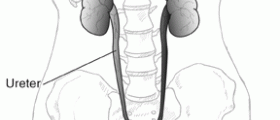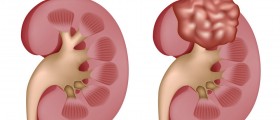
Kidneys perform many vital functions within our bodies. They are important with regard to waste management, blood filtering and the balancing of bodily minerals. Kidneys are also vital in order to produce the right amount of red blood cells. Should ones kidneys fail, it will be necessary to undertake artificial filtering. It will also be necessary to properly maintain blood pressure through the use of medication. End stage renal failure refers to the final stages of kidney disease. Those with ESRD may have only weeks to live unless treatment is properly undergone.Treatment
Kidney failure normally develops gradually over time. Development can be asymptomatic, but in general, people will over time begin to experience fatigue, lack of appetite and itching. Some might suffer from swollen ankles or hypertension. Incontinence or urinal urgency might also be a symptom of kidney disease. Treatment for the early stages of disease will be relatively conservative, and dialysis will only begin when the problems become too severe for conservative treatment.
Before dialysis is performed, it is vital to first undergo some basic medical treatment. If this treatment is unsuccessful, it will be necessary to eventually undergo dialysis. For some people, kidney transplant might be required. With the advancement in medical technology and procedure, one can expect to have a decent life expectancy and lifestyle. However, this will of course depend on ones overall health and wellbeing. As regards dialysis, there are several options from which to choose. Peritoneal dialysis can be performed at home or at work, while haemodialysis is normally undertaken at a specialised centre. The latter requires about three and a half days work each week. For some people, avoiding dialysis might be the best approach. Kidney transplants are the most successful treatments, but it might not be suitable for everyone.
Undergoing dialysis will require some changes in ones lifestyle and habits. The treatment will have to be fitted into your daily or weekly schedule. However, this fact does not mean that you will have to quit work because you are undergoing dialysis. Most employers will understand your situation and, in fact, it is recommended to continue work unless you possess a particularly difficult job. Additionally, one should be able to continue with school or college work, even when being treated with dialysis.
It is very important to maintain a proper exercise regime. However, you should, in general, stay away from contact sports. Undertake as much exercise as you can, but be sure you dont overdo it. There is also no reason for those undergoing dialysis treatment to refrain from driving. Having said that, it is recommended that you do avoid driving in the immediate aftermath of your treatment. For those worried about their sex lives, there is nothing to stop you leading a normal sex life if undergoing dialysis. However, it is normal for patients to be tired or unmotivated, while females might experience some changes in their menstrual cycle.
Smoking should be avoided while undergoing dialysis. It is especially important to avoid smoking if you are scheduled to undergo a kidney transplant. Alcohol consumption is permitted but not recommended. Any alcohol that you do consume must fit into your overall fluid allowance.
Whilst being treated with dialysis, feel free to go on holiday. However, this will of course require planning. Make sure to arrange and plan the holiday well in advance. For those on haemodialysis, it is advised to wait about six months before one does go on holiday. This type of treatment will require a bit of space for the equipment that is needed to perform the treatment.

















Your thoughts on this
Loading...